[Trial version] Effective C++ Third Edition 55 Specific Ways to Improve Your Programs and Designs
[Trial version] Table of Contents
[Trial version] Copyright
[Trial version] Praise for Effective C++, Third Edition
[Trial version] Addison-Wesley Professional Computing Series
[Trial version] Preface
[Trial version] Acknowledgments
[Trial version] Introduction
[Trial version] Terminology
[Trial version] Chapter 1. Accustoming Yourself to C++
[Trial version] Item 1: View C++ as a federation of languages
[Trial version] Item 2: Prefer consts, enums, and inlines to #defines
[Trial version] Item 3: Use const whenever possible
[Trial version] Item 4: Make sure that objects are initialized before they're used
[Trial version] Chapter 2. Constructors, Destructors, and Assignment Operators
[Trial version] Item 5: Know what functions C++ silently writes and calls
[Trial version] Item 6: Explicitly disallow the use of compiler-generated functions you do not want
[Trial version] Item 7: Declare destructors virtual in polymorphic base classes
[Trial version] Item 8: Prevent exceptions from leaving destructors
[Trial version] Item 9: Never call virtual functions during construction or destruction
[Trial version] Item 10: Have assignment operators return a reference to *this
[Trial version] Item 11: Handle assignment to self in operator=
[Trial version] Item 12: Copy all parts of an object
[Trial version] Chapter 3. Resource Management
[Trial version] Item 13: Use objects to manage resources.
[Trial version] Item 14: Think carefully about copying behavior in resource-managing classes.
[Trial version] Item 15: Provide access to raw resources in resource-managing classes.
[Trial version] Item 16: Use the same form in corresponding uses of new and delete.
[Trial version] Item 17: Store newed objects in smart pointers in standalone statements.
[Trial version] Chapter 4. Designs and Declarations
[Trial version] Item 18: Make interfaces easy to use correctly and hard to use incorrectly
[Trial version] Item 19: Treat class design as type design
[Trial version] Item 20: Prefer pass-by-reference-to-const to pass-by-value
[Trial version] Item 21: Don't try to return a reference when you must return an object
[Trial version] Item 22: Declare data members private
[Trial version] Item 23: Prefer non-member non-friend functions to member functions
[Trial version] Item 24: Declare non-member functions when type conversions should apply to all parameters
[Trial version] Item 25: Consider support for a non-throwing swap
[Trial version] Chapter 5. Implementations
[Trial version] Item 26: Postpone variable definitions as long as possible.
[Trial version] Item 27: Minimize casting.
[Trial version] Item 28: Avoid returning "handles" to object internals.
[Trial version] Item29: Strive for exception-safe code.
[Trial version] Item 30: Understand the ins and outs of inlining.
[Trial version] Item31: Minimize compilation dependencies between files.
[Trial version] Chapter 6. Inheritance and Object-Oriented Design
[Trial version] Item 32: Make sure public inheritance models "is-a."
[Trial version] Item 33: Avoid hiding inherited names
[Trial version] Item 34: Differentiate between inheritance of interface and inheritance of implementation
[Trial version] Item 35: Consider alternatives to virtual functions
[Trial version] Item 36: Never redefine an inherited non-virtual function
[Trial version] Item 37: Never redefine a function's inherited default parameter value
[Trial version] Item 38: Model "has-a" or "is-implemented-in-terms-of" through composition
[Trial version] Item 39: Use private inheritance judiciously
[Trial version] Item 40: Use multiple inheritance judiciously
[Trial version] Chapter 7. Templates and Generic Programming
[Trial version] Item 41: Understand implicit interfaces and compile-time polymorphism
[Trial version] Item 42: Understand the two meanings of typename
[Trial version] Item 43: Know how to access names in templatized base classes
[Trial version] Item 44: Factor parameter-independent code out of templates
[Trial version] Item 45: Use member function templates to accept "all compatible types."
[Trial version] Item 46: Define non-member functions inside templates when type conversions are desired
[Trial version] Item 47: Use traits classes for information about types
[Trial version] Item 48: Be aware of template metaprogramming
[Trial version] Chapter 8. Customizing new and delete
[Trial version] Item 49: Understand the behavior of the new-handler
[Trial version] Item 50: Understand when it makes sense to replace new and delete
[Trial version] Item 51: Adhere to convention when writing new and delete
[Trial version] Item 52: Write placement delete if you write placement new
[Trial version] Chapter 9. Miscellany
[Trial version] Item 53: Pay attention to compiler warnings.
[Trial version] Item 54: Familiarize yourself with the standard library, including TR1
[Trial version] Item.55: Familiarize yourself with Boost.
[Trial version] Appendix A. Beyond Effective C++
[Trial version] Appendix B. Item Mappings Between Second and Third Editions
[Trial version] Index
[Trial version] index_SYMBOL
[Trial version] index_A
[Trial version] index_B
[Trial version] index_C
[Trial version] index_D
[Trial version] index_E
[Trial version] index_F
[Trial version] index_G
[Trial version] index_H
[Trial version] index_I
[Trial version] index_J
[Trial version] index_K
[Trial version] index_L
[Trial version] index_M
[Trial version] index_N
[Trial version] index_O
[Trial version] index_P
[Trial version] index_R
[Trial version] index_S
[Trial version] index_T
[Trial version] index_U
[Trial version] index_V
[Trial version] index_W
[Trial version] index_X
[Trial version] index_Z
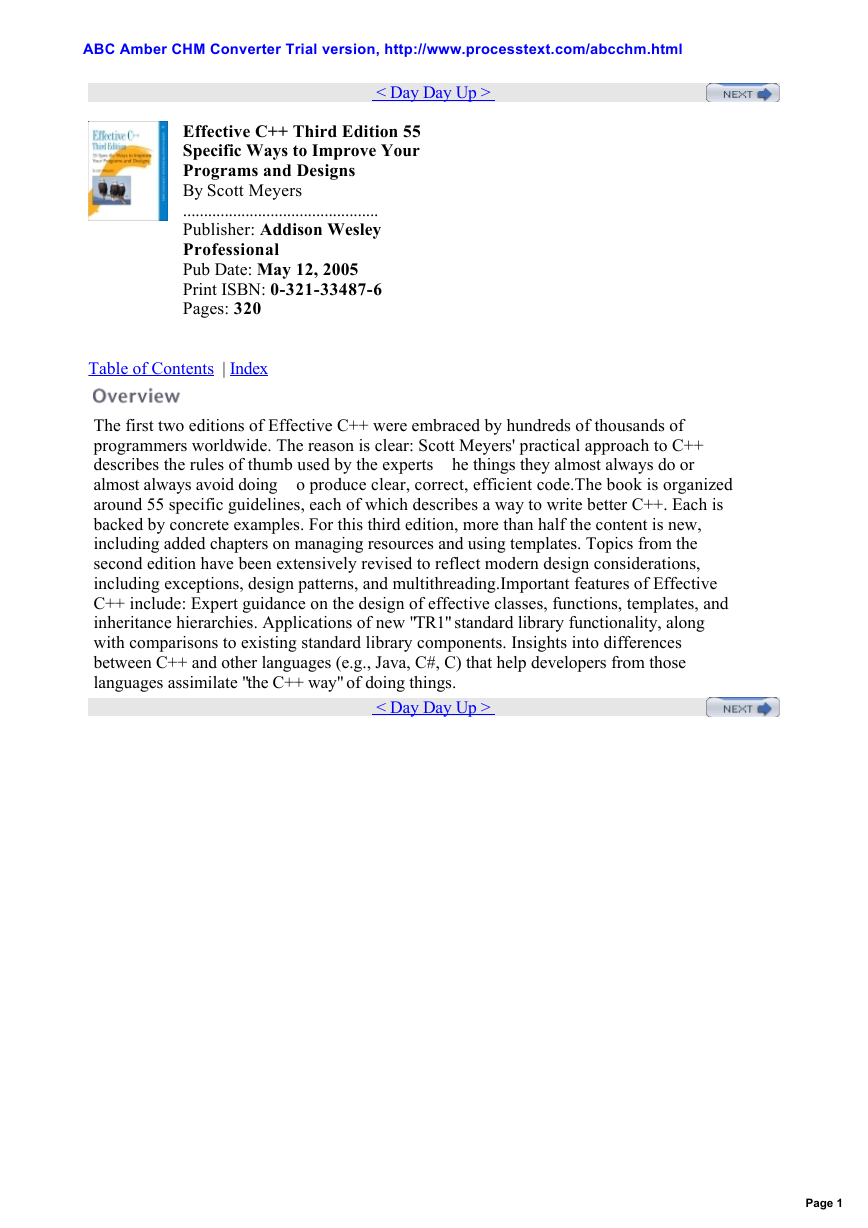
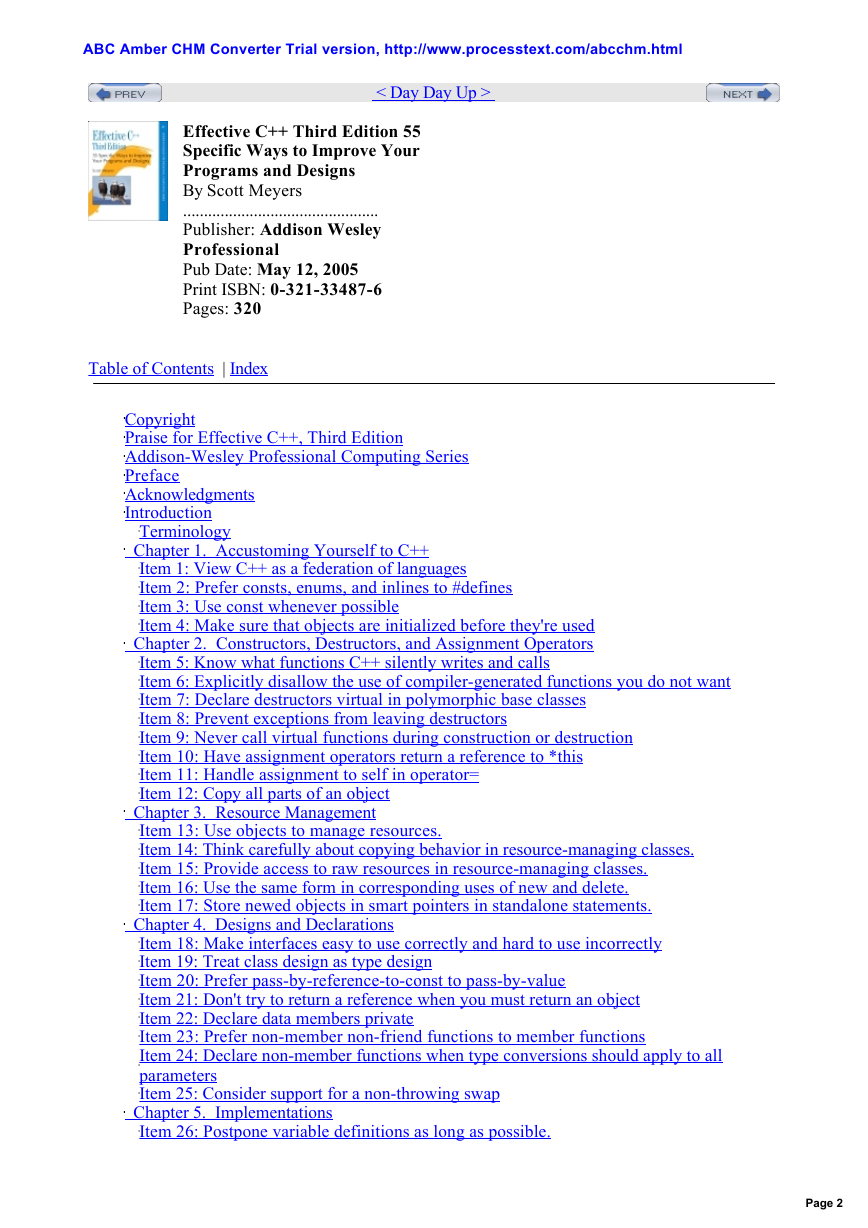
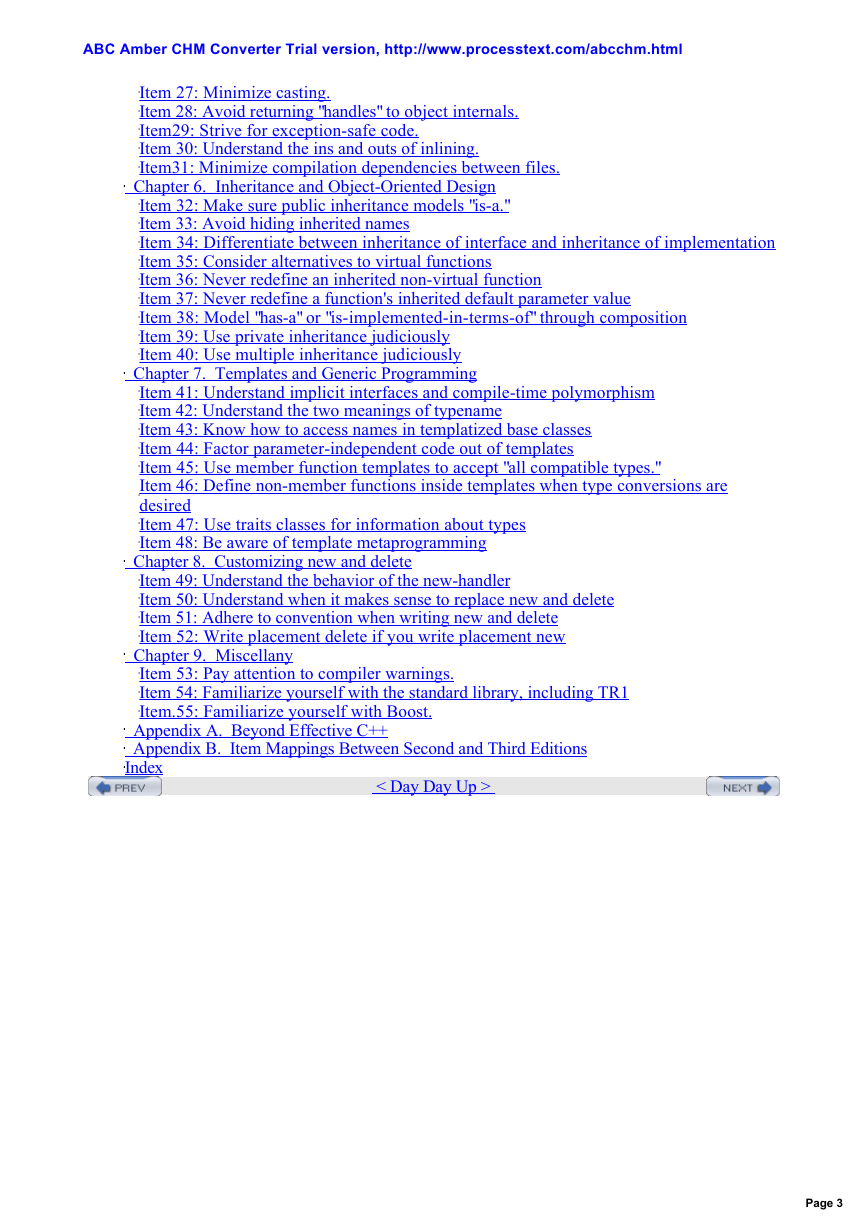
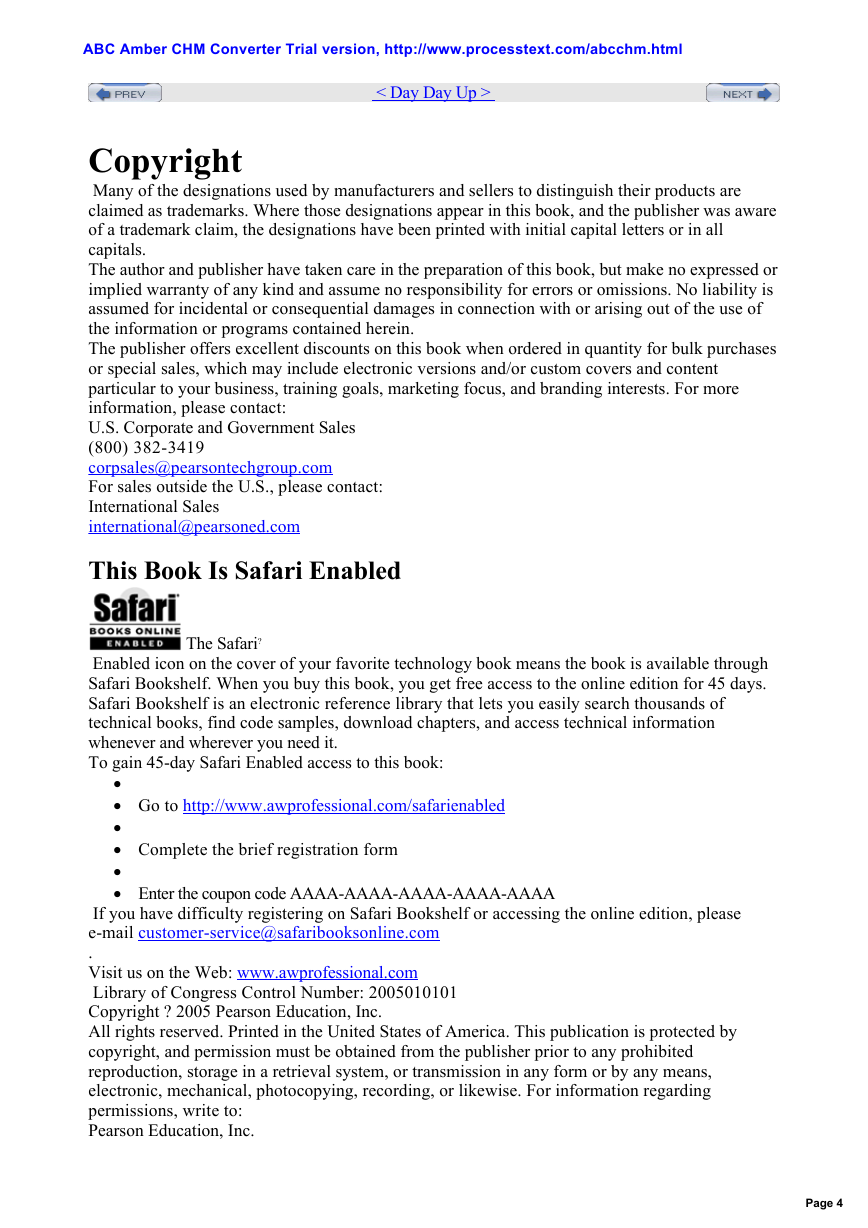

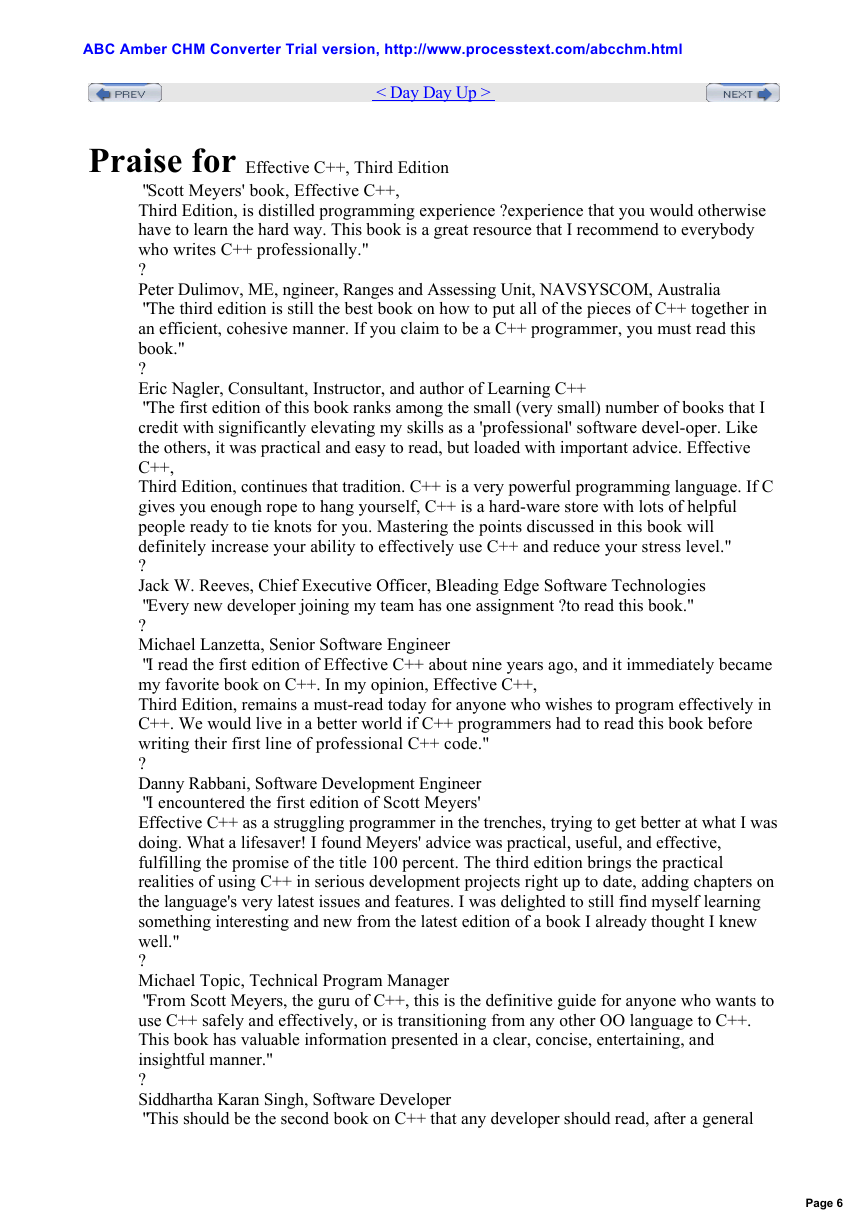
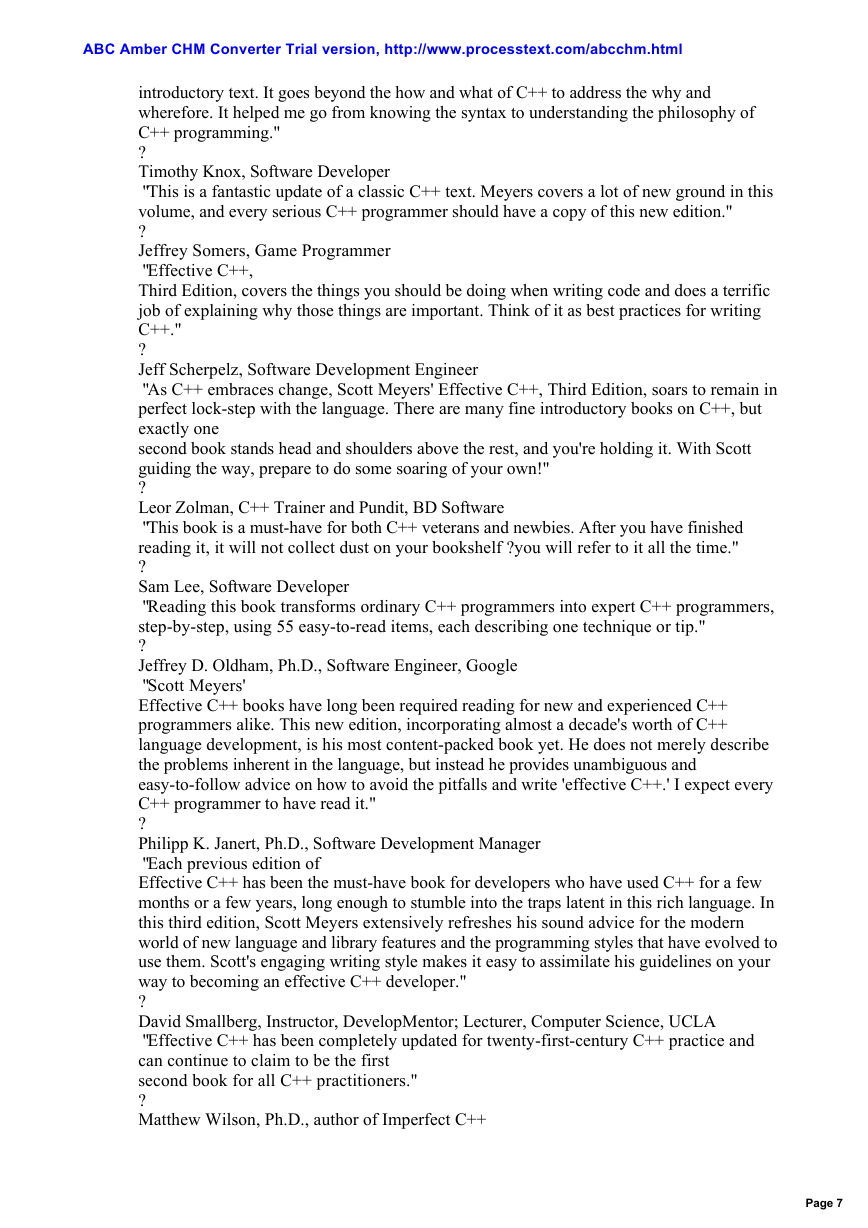









 2023年江西萍乡中考道德与法治真题及答案.doc
2023年江西萍乡中考道德与法治真题及答案.doc 2012年重庆南川中考生物真题及答案.doc
2012年重庆南川中考生物真题及答案.doc 2013年江西师范大学地理学综合及文艺理论基础考研真题.doc
2013年江西师范大学地理学综合及文艺理论基础考研真题.doc 2020年四川甘孜小升初语文真题及答案I卷.doc
2020年四川甘孜小升初语文真题及答案I卷.doc 2020年注册岩土工程师专业基础考试真题及答案.doc
2020年注册岩土工程师专业基础考试真题及答案.doc 2023-2024学年福建省厦门市九年级上学期数学月考试题及答案.doc
2023-2024学年福建省厦门市九年级上学期数学月考试题及答案.doc 2021-2022学年辽宁省沈阳市大东区九年级上学期语文期末试题及答案.doc
2021-2022学年辽宁省沈阳市大东区九年级上学期语文期末试题及答案.doc 2022-2023学年北京东城区初三第一学期物理期末试卷及答案.doc
2022-2023学年北京东城区初三第一学期物理期末试卷及答案.doc 2018上半年江西教师资格初中地理学科知识与教学能力真题及答案.doc
2018上半年江西教师资格初中地理学科知识与教学能力真题及答案.doc 2012年河北国家公务员申论考试真题及答案-省级.doc
2012年河北国家公务员申论考试真题及答案-省级.doc 2020-2021学年江苏省扬州市江都区邵樊片九年级上学期数学第一次质量检测试题及答案.doc
2020-2021学年江苏省扬州市江都区邵樊片九年级上学期数学第一次质量检测试题及答案.doc 2022下半年黑龙江教师资格证中学综合素质真题及答案.doc
2022下半年黑龙江教师资格证中学综合素质真题及答案.doc